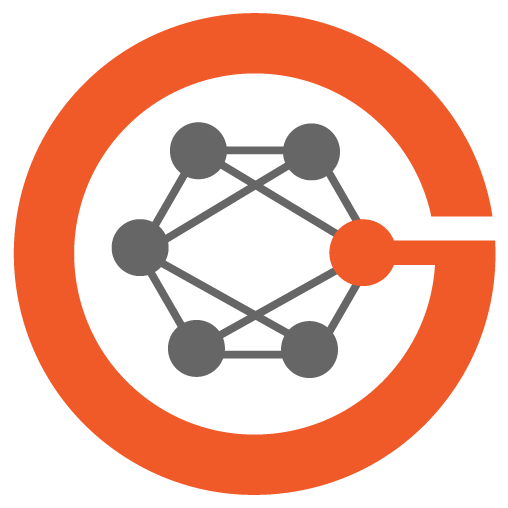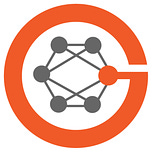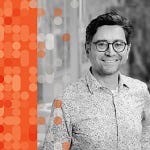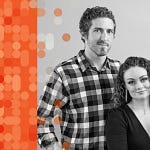Siddhartha Mukherjee is a Professor at Columbia University, oncologist, and extraordinary author of Emperor of All Maladies (which was awarded a Pulitzer Prize), The Gene, and The Song of the Cell, along with outstanding pieces in the New Yorker. He is one of the top thought leaders in medicine of our era.
“I have begun to imagine, think about what it would be to be a digital human..”—Sid Mukherjee
Eric Topol (00:06):
Well, hello, this is Eric Topol with Ground Truths, and I am delighted to have my friend Sid Mukherjee, to have a conversation about all sorts of interesting things. Sid, his most recent book, SONG OF THE CELL is extraordinary. And I understand, Sid, you're working on another book that may be cell related. Is that right?
Sid Mukherjee (00:30):
Eric, it's not cell related, I would say, but it's AI and death related, and it covers, broadly speaking, it covers AI, longevity and death and memory —topics that I think are universal, but also particularly medicine.
Eric Topol (00:57):
Well, good, and we'll get into that. I had somehow someone steered me that your next book was going to be something building on the last one, but that sounds even more interesting. You're going in another direction. You've covered cancer gene cells, so I think covering this new topic is of particularly interest. So let's get into the AI story and maybe we'll start off with your views on the healthcare side. Where do you think this is headed now?
A.I. and Drug Discovery
Sid Mukherjee (01:29):
So I think Eric, there are two very broad ways of dividing where AI can enter healthcare, and there may be more, I'm just going to give you two, but there may be more. One is on what I would call the deep science aspect of it, and by that I mean AI-based drug discovery, AI-based antibody discovery, AI-based modeling. All of which use AI tools but are using tools that have to do with machine learning, but may have to do less directly with the kind of large language models. These tools have been in development for a long time. You and I are familiar with them. They are tools. Very simply put, you can imagine that the docking of a drug to a protein, so imagine every drug, every medicine as a small spaceship that docks onto a large spaceship, the large spaceship being the target.
(02:57):
So if you think of it that way, there are fundamental rules. If anyone's watched Star Wars or any of these sci-fi films, there are fundamental rules by which that govern the way that the small spaceship in this case, a molecule like aspirin fits into a pocket of its target, and those are principles that are determined entirely by chemistry and physics, but they can be taught, you can learn what kind of spaceship or molecule is likely to fit into what kind of pocket of the mothership, in this case, the target. And if they can be learned, they're amenable to AI-based discovery.
Eric Topol (03:57):
Right. Well, that's, isn't that what you'd call the fancy term structure-based discovery, where you're using such tools like what AlphaFold2 for proteins and then eventually for antibodies, small molecules, et cetera, that you can really rev up the whole discovery of new molecules, right?
Sid Mukherjee (04:21):
That's correct, and that's one of the efforts that I'm very heavily involved in. We have created proprietary algorithms that allow us to enable this. Ultimately, of course, there has to be a method by which you start from these AI based methods, then move to physical real chemistry, then move to real biology, then move to obviously human biology and ultimately to human studies. It's a long process, but it's an incredibly fruitful process.
Eric Topol (04:57):
Well, yeah, as an example that recently we had Jim Collins on the podcast and he talked about the first new drug class of antibiotics in two decades that bind to staph aureus methicillin resistant, and now in clinical trials. So it’s happening. There’s 20 AI drugs in clinical trials out there.
Sid Mukherjee (05:18):
It’s bound to happen. It is an unstoppable bound to happen systematology of drug discovery. This is just bound to happen. It is unstoppable. There are kinks in it in the road, but those will be ironed out, but it’s bound to happen.
(05:41):
So that’s on the very discovery oriented end, which is more related to learning algorithms that have to do with AI and less to do with what we see in day-to-day life, the ChatGPT kind of day-to-day life of the world. On the very other end of the spectrum, just to move along on the very other end of the spectrum are what I would call patient informatics. So by patient informatics, I mean questions like who responds to a particular drug? What genes do they have? What environment are they in? Have they had other drug interactions in the past? What is it about their medical record that will allow us to understand better why or why they're not responding to a medicine?
(06:51):
Those are also AI, can also be really powered by AI, but are much more dependent and much more sensitive to our understanding of these current models, the large language models. So just to give you an example, let's say you wanted to enroll a clinical trial for patients with diabetes to take a new drug. You could go into the electronic medical record, which right now is a text file, and ask the question, have they or have they not responded to the standard agents? And what has their response been? Should they be on glucose monitoring? How bad is their diabetes based on some laboratory parameters, et cetera, et cetera. So that's a very different information rich, electronic medical record rich mechanism to understand how to develop medicines. One lies, the first lies way in the discovery end of the spectrum. The second lies way in the clinical trials and human drug exposure end of the spectrum. And of course, there are things in the middle that I haven't iterated, but those are the two really broad categories where one can imagine AI making a difference and to be fair through various efforts, I'm working on both of those, the two end spectrum.
A.I. and Cancer
Eric Topol (08:34):
Well, let's drill down a bit more on the person individual informatics for a moment, since you're an oncologist, and the way we screen for cancer today is completely ridiculous by age only. But if you had a person's genome sequence, polygenic risk scores for cancers and all the other known data that, for example, the integrity of their immune system response, environmental exposures, which we'll talk about in a moment more, wouldn't we do far better for being able to identify high risk people and even preventing cancer in the future?
Sid Mukherjee (09:21):
So I have no doubt whatsoever that more information that we can analyze using intelligent platforms. And I'm saying all of these words are relevant, more information analyzed through intelligent platforms. More information by itself is often useless. Intelligent platforms without information by themselves are often useless, but more information with intelligent platforms, that combination can be very useful. And so, one use case of that is just to give you one example, there are several patients, women who have a family history of breast cancer, but who have no mutations in the known single monogenic breast cancer risk genes, BRCA1, BRCA2, and a couple of others. Those patients can be at a high a risk of breast cancer as patients who have BRCA1 and BRCA2. It's just that their risk is spread out through not one gene but thousands of genes. And those patients, of course have to be monitored and their risk is high, and they need to understand what the risk is and how to manage it.
(10:57):
And that's where AI can, and first of all, informatics and then AI can play a big difference because we can understand how to manage those patients. They used to be called, this is kind of, I don't mean this lightly, but they used to be called BRCA3 because they didn't have BRCA1, they didn't have BRCA2, but they had a constellation of genes, not one, not two, but thousands of genes that would increase their risk of breast cancer just a little bit. I often describe these as nudge genes as opposed to shove genes. BRCA1 and BRCA2 are shoved genes. They shove you into having a high risk of breast cancer. But you can imagine that there are nudge genes as well in which they, in which a constellation of not one, not two, not three, but a thousand genetic variations, give a little push each one, a little push towards having a higher risk of breast cancer.
(12:09):
Now, the only way to find these nudge genes is by doing very clever informatic studies, some of which have been done in breast cancer, ovarian cancer, cardiovascular diseases, other diseases where you see these nudge effects, small effects of a single gene, but accumulated across a thousand, 2000, 3000 genes, an effect that's large enough that it's meaningful. And I think that we need to understand those. And once we understand them, I think we need to understand what to do with these patients. Do we screen them more assertively? Do we recommend therapies? You can get more aggressive, less aggressive, but of course that demands clinical trials and a deeper understanding of the biology of what happens.
A.I. And Longevity
Eric Topol (13:10):
Right, so your point about the cumulative effects of small variants, hundreds and hundreds of these variants being equivalent potentially, as we've seen across many diseases, it's really important and you're absolutely right about that. And I've been pushing for trying to get these polygenic risk scores into clinical routine use, and hopefully we're getting closer to that. And that's just as you say, just one layer of this information to add to the intelligence platform. Now, the next thing that you haven't yet touched on connecting the dots is, can AI and informatics be used to promote longevity?
Sid Mukherjee (13:55):
Yeah, so that's a very interesting question. Let me attack that question in two ways. One biological and one digital. The biological one is to understand, again, the biological one has to do with informatics. So we could use AI so that, imagine that there are thousands, perhaps tens of thousands of variables. You happen to live on a Mediterranean island, you happen to walk five miles a day, you happen to have a particular diet, you happen to have a particular genetic makeup, you happen to have a particular immunological makeup, et cetera, et cetera, et cetera. All of those you happen to have, you happen to have, you happen to have. Now, if we could collect all of this data across hundreds of thousands of individuals, we'd need a system to deconvolute the data and ask the question, what is it about these 750,000 individuals that predicted longevity? Was it the fact that they walked five miles a day? Was it their genetic makeup? Was it their diet? Was it their insulin level? Was it their, so you can imagine an n-dimensional diagram, as it were, and to deconvolute that n-dimensional diagram and to figure out what was the driving force of their longevity, you would need much more than conventional information analysis. You need AI.
(15:58):
So that's one direction that one could use. Again, informatics to figure out longevity. A second direction, completely independent of the first is to ask the question, what are the biological determinants of longevity in other animals? Is it insulin levels? Is it chronic? Is it the immune system? Is it the lack of, and we'll come back to this question, is it as you very well know, people with extreme longevity, the so-called supercentenarians. Interestingly, the supercentenarians don't generally die of cancer and heart disease, which are the two most common killers of people in their 70s and 80s in most countries of the western world. They die typically of what I would call regenerative failure. Their immune systems collapse. Their stem cells can't make enough skin, so they get skin infections, their skin collapses, they get bone defects, and they die of fractures. They get neurological defects, they die of neurodegenerative diseases and so forth. So they die of true degenerative diseases as opposed to cancer and heart disease, which have been the plagues of human biology since the beginning of time.
(17:49):
Again, I'm talking about the western world, of course, a different story with infectious diseases elsewhere. So a different way to approach the problem would be to say, what are the regenerative blockades that prevent regeneration at a biological level for these patients? And ask the question whether we can overcome these regenerative blockades using, again, the systems that I described before. What are they? What are the checkpoints? What are the mechanisms? And could we encourage the body to override those mechanisms? We still have to deal with heart disease and cancer, but once we had dealt with heart disease and cancer, we would have to ask the question. Okay, now we've dealt with those two things. What are the regenerative blockades that prevent people from having longevity once we've overcome those two big humps, heart disease and cancer?
Eric Topol (19:00):
Yeah, no, I think you're bringing up a really fascinating topic. And as you know, there's been many different ideas for how to achieve that, whether that's the senolytic drugs or getting rid of dead cells or using the transcription factors of cells instead of going into induced pluripotent stem cells, but rather to go to a rejuvenation of cells. Are you optimistic that eventually we're going to crack this case of better approach to regeneration?
Sid Mukherjee (19:33):
Oh, I'm extremely optimistic. I'm optimistic, but I'm optimistic to a point. And that brings me to the third place, which is I'm optimistic to a point, which is that you conquer in some, hopefully you conquer a major part of heart disease and cancer, and now you're up against cellular regeneration. You then conquer cellular regeneration. And I don't know what the next problem is going to be. It's going to be some new hurdle. So I think there are two solutions to that hurdle. One solution is to say, okay, there's a new hurdle. We'll solve that new hurdle and it's bit by bit extending longevity year by year, by year by year as it were. But a completely second solution occurs to me, and here I'm going completely off script, Eric, which is what I do in my life.
Going Off Script: Being A Digital Human
(20:45):
I have begun to imagine, think about what it would be to be a digital human and by a digital human I mean, it began with my father's death. My father passed away a few years ago, and I would sometimes enter a kind of psychic space, what I would call a psychomanteum, in which I would imagine myself asking him questions about critical moments in my life, make a critical decision. I would rely on my father to make that decision for me. He would give me advice. That advice had some stereotypical qualities about it. Think about this, think about that. My experience has been this. My life has been this. My life has been that. But of course, times change. And I began to wonder whether with the use of digital technologies and digital AI technologies in particular, what could create a simulacrum of a psychomanteum?
(22:06):
So in other words, your physical body would pass, but somehow your digital body, all the memories, the experiences, the learning, all of that, that you had, the emotional connections that you had formed in your lifetime would somehow remain and would remain in a kind of psychomanteum in which you could go into a room. And again, I'm not talking voodoo science here. I'm talking very particular ways of extracting information from a person's decision making, extracting information about a person's ideas about the word their sort of their schema, or as psychologists describe it, the schemata. So that in some universe, if my father downloaded passively or actively the kind of decision making, not the actual decisions, the form of decision making and the form of communication that he liked, that I could go back to him eternally. My grandchildren could go back to him eternally and ask the question, great grandpa, what would you do under these circumstances? And what's amazing about it is that this is not completely science fiction.
Eric Topol (23:45):
Not at all.
Sid Mukherjee (23:46):
It is within the realms of reality in the sense of there's no digital limitation to it. The main limitation to it is information. So Eric Topol, you make decisions I would imagine with some kind of stereotypical wisdom, you have accumulated wisdom in your life. You think about things in a particular critical way. When you read a book, you read a book in a particular way, it's whatever it might be. And Eric Topol psychomanteum would be, I would go into a space and see you and ask you a question, Eric, you read this book, what did you think about it? You found this piece of evidence. Read this scientific paper. What do you think about it? And so forth.
(24:49):
So again, let me just go back to my first point, which is number one, I think that regenerative medicine will have a regenerative moment itself, and we will discover new medicines, new mechanisms by which we can extend lifespan. Number two, that will involve getting over two big humps that we have right now, cancer and heart disease. Hopefully we'll get over both of those at some point of time. And number three, that in parallel, we will find a way to create digital selves that even when our physical bodies decay and die, that we will have a sense of eternal longevity based on digital selves, which is accessible or readily accessible through AI mechanisms. Yeah, this spectrum, I think will change our ideas of what longevity means.
The Environmental Factors
Eric Topol (26:10):
Well, I think your idea about the digital human and the brain and the decision making and that sort of thing is really well founded by the progress being made in the brain machine interface, as you know, with basically the mind is being digitized and you can get cells to talk, to speak to a person, and all sorts of things that are happening right now that are basically deconvoluting brain function at the cellular, even molecular neural level. So I don't think it's farfetched at all. I'm glad you went off script, Sid. That's great. Now this, I want to get back to something you brought up earlier because there are a lot of obstacles as you will acknowledge. And one of them is that we have in our environment horrible issues about pollution, about carcinogens, the focus of your recent New Yorker piece, plastics, microplastics, nanoplastics, now found in our arteries and brains and causing more, as we just recently saw, more heart attack, strokes and death, and of course the climate crisis. So with all this great science that we've just been discussing, our environment's going to hell, and I want to get your comments because you had a very insightful piece as always in the New Yorker in December about this, and I know you've been thinking about it, that the obstacles are getting worse to override the problems that we have today, don't you think?
Sid Mukherjee (27:55):
So you're absolutely right. If we go down this path, we are going to go to hell in eye baskets. What we haven't discounted for is really decades, if not possibly a century of research that shows that there are certain kinds of inflammatory agents that cause both cancer, heart disease, and inflammation that have to do with their capacity to be so foreign to the human body that they're recognized as alien objects and so alien that our immune systems can't handle them. And essentially send off what I would call a five-bell alarm, saying that here's something that the immune system can't handle. It's beyond the capacity. And that five-bell alarm, as we now know, unfortunately, causes a systemic inflammatory response. And that systemic inflammatory response can potentiate heart disease, cancer, and maybe many other diseases that we don't know about because we haven't looked.
Eric Topol (29:28):
Absolutely.
Sid Mukherjee (29:29):
So to connect this back to climate change, pollution is one of them. Air pollution is absolutely one of them. Microplastics, undegradable sort of forever plastics are one of them, or some of them. I think that there is no way around it except to really find a systematic way of assessing them. Look, it is wonderful to have new materials in the world. I'm wearing a jacket made out of God knows what, it's not cloth. I don't know what you are wearing, Eric, but it may not be cloth. These are great materials. This keeps the rain away. But on the other hand, it may be shedding something that I don't know. We need to find scientific ways of assessing the safety and the validity of some new materials that we bring into the world. And the way that we do that is to ask the question, is it inflammatory? Is there something that we are missing? Is there something about it that we should be thinking about that we haven't thought about?
Eric Topol (31:02):
Well, and to that end, you've been a very, I think, astute observer about diet as it relates to cancer. And we know similarly, as we just talked about with our environment, there's the issue of ultra-processed foods, and we've got big food, we got big plastics, big tobacco. I mean, we have all these counter forces to what the science is showing.
Sid Mukherjee (31:29):
Too many bigs.
Eric Topol (31:31):
Yeah, yeah. But I guess the net of it is, Sid, if I get it right, you think that the progress we're making in science, and that includes the things we've talked about and genome editing and accelerated drug discovery, these sorts of programs, the informatics, the AI can override this chasing of our tail with basically unchecked issues that are, whether it's from our nutrition, our air, what we ingest and breathe, these are some serious problems.
Preventing Diseases
Sid Mukherjee (32:06):
No, I don't think that. I don't think that cancer and cardiovascular disease prevention, as you very well know, Eric, because you've been in the forefront of it, is a pyramid. The base of the pyramid is prevention. Prevention is the most effective. It's the most difficult. It's the hardest to understand, the most difficult trials to incorporate, but it is the base of the pyramid. And so let it be said that I don't think that we're going to solve cancer, cardiovascular disease by better treatment using CRISPR. My laboratory, and one of my companies before I happened to be wearing the jacket, but was one of the first to use CRISPR and transplant CRISPR. CRISPR, human beings with or CRISPR bone marrow into human beings long before anyone else, we were actually among the first. These human beings, thankfully, and astonishingly remain completely alive. We deleted a gene from their bone marrow. They engrafted with no problem. They're still alive today, and we are treating them for cancer. Astonishing fact, there are 12 of them in the world.
(33:49):
And again, astonishing fact, wonderful, beautiful news, beautiful science. But there are 12, if we want to make a big change in the universe, we need to get not to 12, but to 12 million, potentially 120 million. And that's not going to happen because we're going to CRISPR their bone marrow. It's going to happen because we change their environments, their diets, their lifestyles, their exposures, we understand their risks, their genetics, et cetera, et cetera, et cetera, et cetera. It's not going to happen because we give them CRISPR bone marrow transplants that enable them to change their risk of cancer. So I'm very clear about this or clear eyed about it, I would say, which is to say that great progress in medicine is being made. There's no doubt about it. I'm happy about it. I'm happy to be part of it. I'm happy to be in the forefront of it.
(35:00):
We have now delivered one of the first cellular therapies for cancer in India at a price point that really challenges the price point of the west. We are now producing this commercially and or about to produce this commercially, so for lymphomas and leukemias, I'm so excited about the progress in science. But all of that said, let me be very clear, the real progress in cancer and cardiovascular disease is going to come from prevention. And if that's where we're going, we need to really rethink at a very fundamental level as you have Eric, at a very fundamental level, how do we rethink prevention, cancer prevention, cardiovascular disease prevention, and as a correlate, regenerative disease, regeneration, cancer prevention, cardiovascular disease prevention. The fundamentals are how do we find things that are in our exposome, things that we're exposed to environments, gene environment interactions that increase the risk of cancer and cardiovascular disease, and how do we take them out? And how do we do this without running 15-year trials so that we can get the results now? And that's what I'm really interested in in terms of information.
Eric Topol (36:55):
Yeah. Well, I'm with you there. And just to go along with those 12 patients you mentioned, as you know recently it was reported there were 15 patients with serious autoimmune diseases, and they got a therapy to knock out all their B cells. And when their B cells came back, they didn't make autoantibodies anymore. And this was dermatomyositis and lupus and systemic sclerosis, and it was pretty magical. If it can be extended, like you said, okay, 15 people, just like your 12, if you can do that in millions, well, you can get rid of autoimmune diseases, which would be a nice contribution. I mean, there's so many exciting things going on right now that we've touched on, but as you get to it, you've already approached this inequity issue by bringing potentially very expensive treatments that are exciting to costs that would be applicable in India and many countries that are not in the rich income category. So this is a unique time it seems like Sid, in our advances, in the cutting edge progress that's being made, wouldn't you say?
The Why on Cancer in the Young
Sid Mukherjee (38:14):
Well, I would say that the two advances have to go hand in hand. There will be patients who are recalcitrant to the standard therapies, your patients with severe lupus dermatitis, et cetera. Those patients will require cutting edge therapy, and we will find ways to deliver it to them. There are other patients, hundreds of not 12, not 15, but hundreds of thousands if not millions, who will require an understanding of why there is an increase, for instance, in asthmatics disease in India. Why is that increasing? Why is there an increase in non-smoking related lung cancer in some parts of the world? Why? What's driving that? Why is there an increase in young patients with cancers in the United States? Of all things that stand out, there is a striking increase in colorectal cancer in young men and women. There's an increase in esophageal cancer in young men and women. Why?
Eric Topol (39:58):
Yeah, why, why?
Sid Mukherjee (40:00):
Why? And so, the answer to that question lies in understanding the science, getting deeper information informatics, and then potentially understanding the why. So again, I draw the distinction between two broad classes of spaces where information science can make a big difference. On one hand, on the very left hand of the picture, an understanding of how to make new medicines for patients who happen to have these diseases. And on the way right hand of finding out why these patients are there in the first place, and asking the question, why is it that there are more patients, young men and women with colorectal cancer, are we eating something? Is it our diet? Is it our diet plus our environment? Is it the diet plus environment plus genetics? But why? There must be a why. When you have a trend like this, there's always a why. And if there's a why, there's always an answer. Why? And we have the best tools, and this is the positive piece of this. The positive piece of this is that we now have among the best tools that we've ever had to answer that why? And that's what makes me optimistic. Not a drug, not a medicine, not a fancy program, but the collective set of tools that we have that allow us to answer the question why? Because that is of course the question that every patient with esophageal and colorectal cancer is asking why.
Eric Topol (42:01):
I'm with you. What you're bringing up is fundamental. We have the tools, but we've noted this increase in colon cancer in the young for several years, and we're not any closer to understanding the why yet, right?
Sid Mukherjee (42:18):
Yes. We're not any closer to understanding the why yet. Part of the answer is that we haven't delved into the why properly enough. These are studies that take time. They have longitude because these are studies that have to do with prevention. They take time, they take patients. So the quick answer to your question is, I don't think we've made the effort and we haven't made the effort, especially with the technological advances that we have today. So imagine for a second that we launched a project in which, again, like the Manhattan project, the Apollo project, we advanced a project which said the colorectal cancer in young project in the United States, we brought the best science minds together and ask the question, go into a room, lock yourself up, and don't come out of the room until you have the answer to figuring out how and then why we have young men and women with colorectal cancer increasing. I would imagine you could nominate, I could nominate 10 people to that committee and they would willingly serve. They'd be willing to be locked up in a room and ask the question why? Because they want to answer that question. That why is extraordinarily important.
Eric Topol (44:14):
I'm with you on that too, because we have the tools, like you said, we can assess the gut microbiome, their genome, their diets, their environmental exposures and figure this out. But as you say, there hasn't been a commitment to doing it.
Sid Mukherjee (44:30):
And that commitment has to come centrally, right? That commitment has to come from the NIH, that has to come from the NCI, the National Cancer Institute, the National Institute of Health. It has to come as a mechanism that says, listen, let's solve this problem. So identifying the problem, there's an increase in colorectal cancer in young people. Important. Yes. Let's, let's figure out the answer why, and let's collect all the information for the next five years, seven years, whatever it might take to answer that question.
Eric Topol (45:18):
And as you said, the intelligent platforms will help analyze it.
Sid Mukherjee (45:23):
Yes. I mean, we have the tools. So if you have the tools and if you collect the information, the tools will analyze that information.
Eric Topol (45:36):
Right. Well, this has been inspiring and daunting at the same time, this discussion. What I love about you, Sid, is you're a big thinker. You're one of the great thinkers in medicine of our era, and you also of course are such an extraordinary writer. So we're going to look forward to your next book and your rejuvenation of the cancer Emperor of All Maladies book but I want to thank you. I always enjoy our discussions. They always get to areas that highlight where we're missing the opportunities that we have that we're not actualizing. That's one of the many things I really love about you and your work, so keep up the good stuff and I look forward to the next chance we get to visit and discuss all this stuff.
Sid Mukherjee (46:31):
And it's been a great pleasure knowing you for so many years, Eric. And then whenever we have dinner together, the dinner always begins with my asking you why. And so, the why question is the first question. The how question is a harder question. We can always answer the how question, but the why question is the first question. So the next time I have dinner with you, wherever it might be, San Diego, New York, Los Angeles, I'm going to ask you another why question. And you're going to answer the how question, because that's what you're good at. And it's been such a pleasure interacting with you for so many years.
Eric Topol (47:12):
Oh, thank you so much. What a great friend.
Thanks for listening/reading to this Ground Truths conversation.
If you found it stimulating, please share with your colleagues and friends.
All content on Ground Truths—newsletter analyses and podcasts—is free.
Voluntary paid subscriptions all go to support Scripps Research.
Ground Truths now has a YouTube channel for all the podcasts. Here’s a list of the people I’ve interviewed that includes a few that will soon be posted or are scheduled.













Share this post